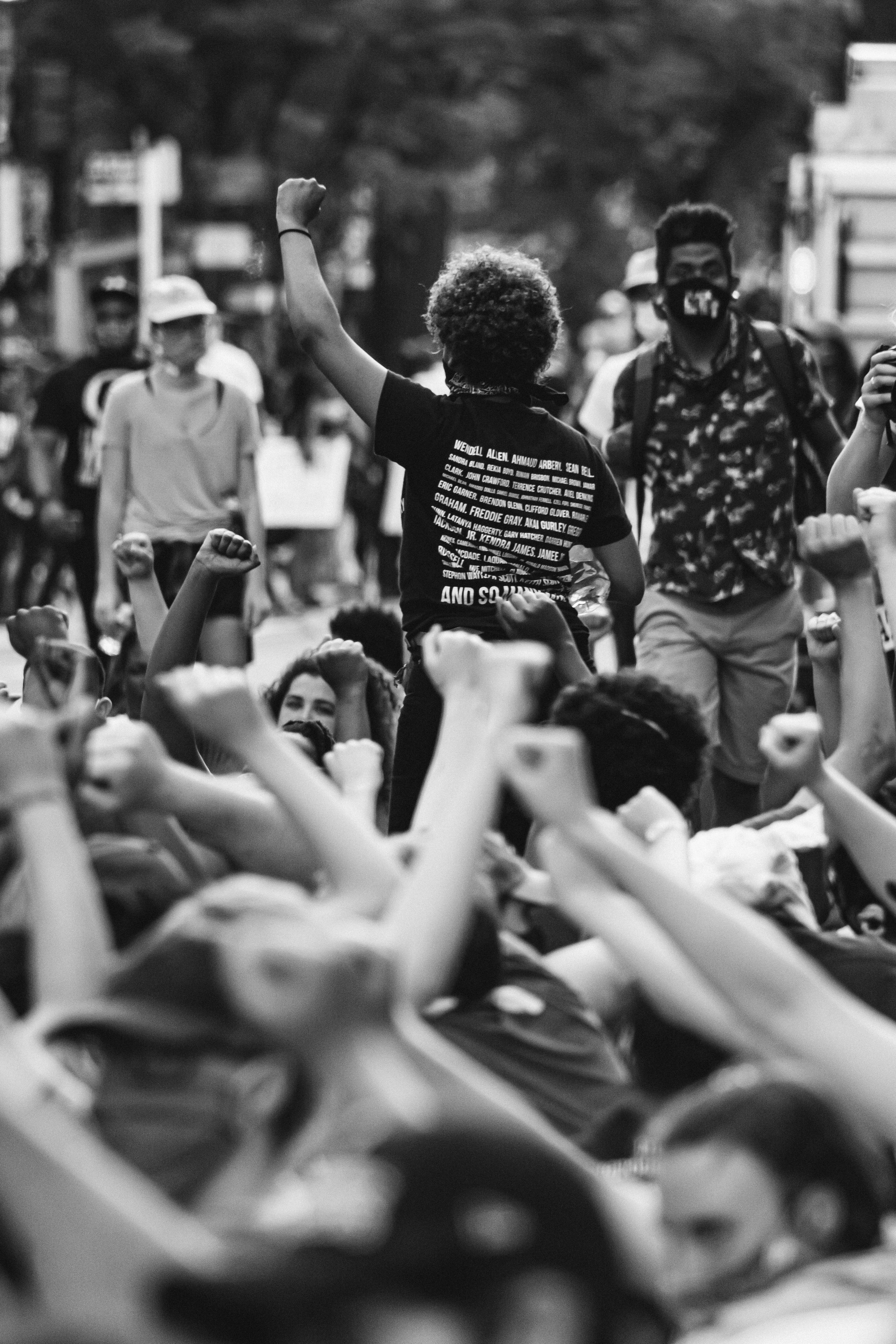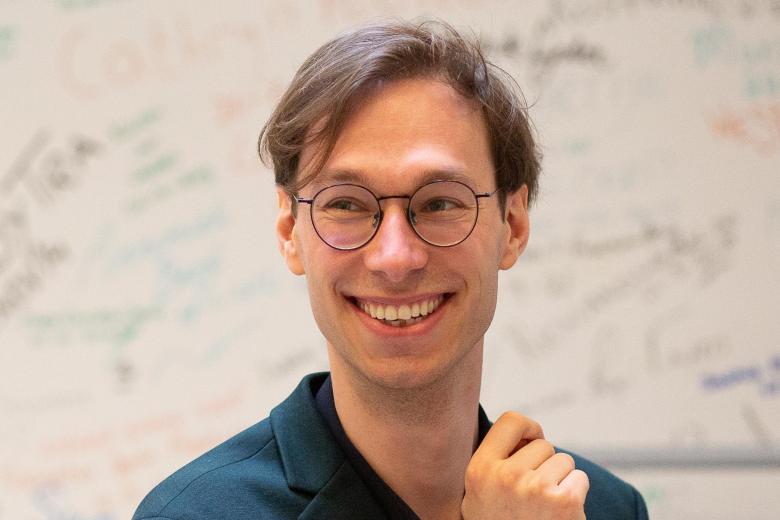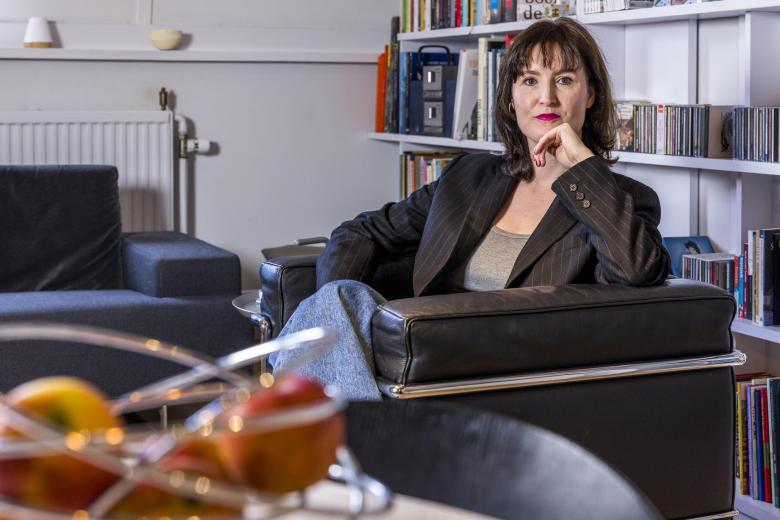Disinformation and democracy: Rethinking truth in a digital age
In recent years, disinformation has become one of the most pressing challenges to democracy. The explosion of misleading narratives following the Brexit referendum and the 2016 election of Donald Trump catapulted the issue into mainstream discourse.
“However,” Betto van Waarden, Assistant Professor of History, explains, “disinformation is not a new phenomenon, even though we treat it as such. Moreover, while fact-checking and countering disinformation are crucial, we need to look at the broader picture. The assumption that democracy functions smoothly as long as we have facts is inaccurate. Instead, we must recognise that democracy is not governed by an objective 'truth' but by competing worldviews.”
The myth of a truth-based democracy
A common belief is that in the 'good old days', democracy functioned on the basis of correct information and truth. But this idea is more nostalgic myth than reality. "Honestly, we never had that," says Betto. "Democracy exists because we have competing worldviews." He adds: “facts are important, but facts do not speak for themselves and do not lead to automatic policy outcomes; facts need to be interpreted and their policy implications need to be debated democratically by people with conflicting views of social reality.”
Truth in democracy has always been a battleground – who defines it, who controls it, and how it evolves over time. Disinformation is not just about falsehoods but about power: who gets to control the dominant narrative. "Democracy is not rule by truth, but rule by the people," Betto explains. "The truth of the political establishment has often undermined the truths of others, like women and minorities."
The complexity of disinformation
Research on disinformation is highly fragmented. People's beliefs are not formed solely by exposure to fake news but are shaped by a complex web of social influences over time – family, friends, and social media. This makes disinformation difficult to measure. "If you show someone one example of fake news, their overall worldview won't immediately change," Betto notes. "Most research focuses on isolated short-term effects, yet we need a better understanding of contextual long-term effects. In other words: we need to leave the lab to study disinformation in its natural real-world context – even if this is difficult.”
This is where the sector plan at Maastricht University comes in. Eight researchers across four faculties – the Faculty of Psychology and Neuroscience, the School of Business and Economics, the Faculty of Law, and the Faculty of Arts and Social Sciences – are working together to connect these fragmented research lines. A historical perspective is essential to understanding the evolution of disinformation. "It sounds as if fake news is a new problem, but battles over truth have always existed," he says. "What has changed is the technology and the scale."
What we now call 'disinformation' was once known as propaganda. How do media and politicians shape public opinion? In the past, governments tried to control narratives directly. "A century ago, the Germans carefully recorded how much they spent on bribing newspapers internationally," Betto explains. "They even monitored what the French, British, and Russians were paying for media influence. Behind the scenes, the German government also did everything in its power to control news agencies that distributed information around the world. An American could read his newspaper in New York without being aware that its news actually came from Germany. Major international news agencies controlled a greater share of global information than Google or Meta do today."
Nowadays, the mechanisms may have changed, but the fundamental strategies remain. "Propaganda became a dirty word, but that is what disinformation is," Betto argues. "We should connect current discussions to historical research on propaganda – we don’t need to reinvent the wheel."

The role of timing in information
The issue is not just whether information is accurate but when it reaches people. We live in an era of information overload, yet crucial information often fails to reach citizens at the right moments. Timing plays a far greater role in democracy than we tend to acknowledge. "More information is available now than ever before," Betto points out. "But the real issue isn’t accuracy – it’s timing. Do people receive the right information when they actually need it?"
Timing is especially critical in politics. “The way information is organized and the time people have to process it can shape democratic outcomes. Different institutions operate on varying timelines – senators serve longer terms, and constitutional changes require re-approval by the next government, ensuring a more deliberative process. Yet, in recent years, there has been a growing preference for strong executive leadership, a trend accelerated by COVID-19. As a result, power has shifted from parliaments to presidents, who can make decisions more quickly.”
However, research suggests a paradox: while parliamentary deliberation takes longer, policies developed through slower, more thorough discussions often lead to faster and more effective implementation. “This underscores the need for institutional deliberation – not just to give policymakers time to process information but also to ensure citizens are informed and engaged. Civic education plays a vital role in this, equipping people with the tools to navigate political processes meaningfully.”
The timing of political messaging also influences public perception. “Speaking times in parliament, for example, are often scheduled to align with television news cycles. A minister may speak in the late afternoon – just in time for their statement to appear on the evening news, but too late for critics to still respond in time. The way information is fed to the media is a powerful tool in shaping narratives. This strategic use of timing is not new. As early as the 19th century, the British Parliament was already adapting to the accelerating pace of society, recognising the growing influence of media on political discourse.”
AI and the new frontier of disinformation
Artificial intelligence introduces new complexities. Propaganda has always evolved with technology – from Roman emperors stamping their faces on coins to the printing press, radio, and television. Social media is merely the latest iteration. But AI is different – it can create and disseminate narratives independently. "Unlike past technologies, AI decides the story itself," Betto warns. "How do we ensure that AI aligns with democratic values over time? The values we had in the 1950s are now outdated, as we perceive them as racist or sexist. But AI is fed with information from the past, so how do we ensure it aligns with our evolving values?"
The regulation of political information is another challenge. Some countries limit election campaigns to four weeks, preventing the constant information bombardment seen in the U.S. However, this also restricts the flow of political discourse. "Who sets the agenda? The media or politicians?" Betto asks. "We need more research into how governments influence information."
The study of disinformation must move beyond fact-checking and towards understanding its deeper implications for democracy. Historical lessons from propaganda can guide contemporary responses. Timing plays a crucial role in how information impacts political processes. And AI presents new challenges that require futureproofing regulation.
Interdisciplinary collaboration, as seen in the sector plans, is essential. By bridging gaps between history, law, economics, and psychology, we can develop a more nuanced understanding of disinformation. "Disinformation is not new, and we have experience in dealing with it," Betto concludes. "The question is: how do we apply those lessons to today's challenges?"
Text by: Eva Durlinger
Pictures by: Claire Gilissen and Gayatri Malhotra
Also read
-
Book launch and professorship Anna Harris: The Matter of Hospitals
Hospitals are often seen through the lens of urgency, care, and crisis – but what about the materials that make them work?

-
FASoS awarded NWO PhDs in the Humanities grant for project on early bird photography and conservation
We are pleased to announce that Pauw Vos has been awarded an NWO PhDs in the Humanities grant for the project “Narratives of the Nest: Early Dutch Bird Photography and the Visual Construction of Conservation (1890–1940)”.

-
Aagje Swinnen awarded NWO Open Competition M
Aagje Swinnen (FASoS) and Sarah de Mul (Open University), have been awarded an NWO Open Competition M grant for the project “Re-Imagining Burnout and the Cultural Narrative of Productive Adulthood through Literature”.
